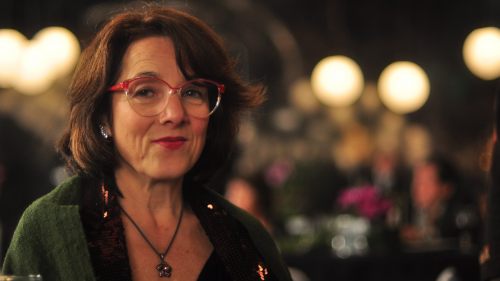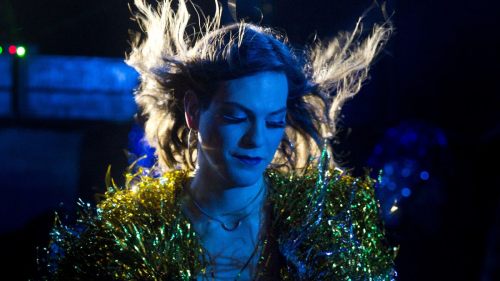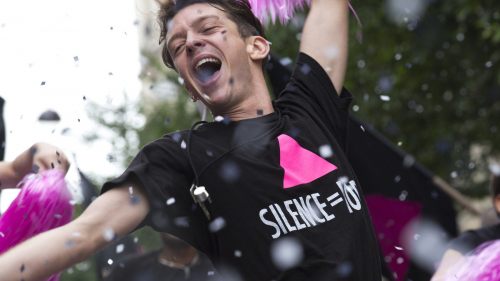The Ghosts in Me: Specters of Loss and Oppression in A FANTASTIC WOMAN
A Fantastic Woman is out now. Get your tickets here!
Much of the focus of the publicity around Chilean drama A Fantastic Woman, the recent Oscar nominee for Best Foreign Language Picture, has centered on the idea of its central figure ‘navigating life’ after the death of a loved one. Indeed, the main push of the film’s structure is based around that very fight, as a transgender woman asserts her right in the immediate aftermath of her lover’s death to be afforded the basic human dignities owed any person. And yet for all its immediate social realism, this story is seeded through with splashes of fantasy and surrealism. At the root of these dream-like sequences is death and loss, something the transwoman at the center of the story and, on a wider level, the community she comes to represent, bears with quiet dignity and urgency. The woman of the title, Marina, is indeed fantastic – a woman entirely uninterested in notions of tragedy and victimhood defining her experience – and yet the ‘fantastic’ of the title can also be thought to refer to something remote from reality – a ‘fantasy’, something worth dreaming of but too often just out of reach.
In A Fantastic Woman, lounge singer Marina is living a life of general satisfaction, deeply in love with her partner Orlando, an older man who has left his family to pursue the caring, mutually attentive relationship he shares with Marina. Following his sudden and extremely untimely death, the world of security Marina has built around herself quickly comes crashing down, as she faces suspicion from government officials and is barred from the funeral by Orlando’s family. The film is at once a small example of everyday indignities and outright prejudice that so frequently dogs Marina’s experience as a transgender woman (experiences undoubtedly relatable to many other members of her community), and yet remains an immensely personal story, rarely leaving her side as she navigates a world suddenly turned outwardly hostile toward her. Throughout, we indulge in moments of fantasy that are something not quite a dream sequence, but close – a musical sequence, or a vision of a loved one – where the struggle or the inner turmoil of Marina is made literal. Perhaps most notably, in an instantly iconic scene, subtext becomes text in a sequence in which Marina struggles down a busy street as she is beset by a mighty wind, seemingly pushing her away from any sort of progress as she attempts to move forward.
The most common manifestation of this fantasy is the appearance of the recently deceased Orlando, who shows up regularly just out of sight of Marina, or obscured in some way. In the hands of another story, this technique may feel somewhat heavy-handed, but here it is deployed in ways that feel entirely justified. The main reason for this, I’d argue, is that Orlando as a manifestation comes to stand for something other than himself entirely – in his relationship with Marina, and in the still raw devastation of loss Marina bears even as she tries to find some sort of catharsis in an adverse world, his presence morphs into a higher suggestion, one that emphasizes the very real historical loss and pain of the transgender community at large.
This is almost entirely due to the tremendous work of Daniela Vega as Marina, in a stunningly lithe, composed performance. Undoubtedly one of the most fully realized and complex transgender roles to ever grace the big screen, Vega’s performance itself is entirely focused on creating a fully empathetic (and sometimes uncomfortably human) character. At the same time, Vega’s performance indicates she is acutely aware of the lamentable rarity of such a primary role for a transgender person in the cinematic landscape – there is no choice for a character like this but to become a de facto stand-in for a larger segment of the population. Like many maligned, oppressed communities, it is a common theme to see the oppression of that community come part and parcel with many stories about them that appear in film, even if the story is, as in Fantastic Woman, laser-focused on simply telling Marina’s story. The way in which these narratives speak for wider communities means that the history of those communities’ struggles and pain are achingly present in these films – the spectre of loss and oppression hanging over the proceedings like the ghost of Orlando does visually in the fabric of the film.
The injustices in the film range from the subtle to the overt – from the simple inflections of police questioning to the moment when Orlando’s ex-wife tells Marina to her face that she ‘doesn’t know what she sees’ when she looks at Marina. The story itself proceeds much as one would expect in a narrative such as this, as Marina is step by step stripped of one human dignity after another, all the while fighting furiously for as simple a goal as saying goodbye to the man she loves. It is a deeply unsettling, infuriating experience, one perhaps designed to expose the casual societal bigotry inflicted on the lives of marginalized people, but one that is surely all too familiar to so many of those in the transgender community themselves. This is why the focus on Marina’s story is so vitally personal and based in singular human experience. As someone not a part of this community, I can’t possibly speak for those experiences, and so my experience watching the film is based on essential human empathy, one that A Fantastic Woman uses to make these spectres of oppression and pain self-evident to people who otherwise may not see them.
This is achieved not only in the appearance of Orlando, but in all the dream sequences – some fueled by a kind of wild musical romanticism, others subtle but effective (as in a moment when a couple of workmen pass by Marina on the street, holding a giant mirror). Marina, for her part, bears the weight of this historical pain with a level of awareness – never is she shocked by the actions of others, but rather takes the knocks with a kind of weary composure, as someone who has been taught by life that people fear what they don’t understand. The ultimate impact of this is that Marina, like those whose bold, remarkable presence in the community is ongoing, is prevented by external forces from moving their own story forward, and so often can’t change the narrative against one that wants to continually quash their viewpoints and voices. Without being able to move on in a more grandiose, social sense, these narratives (and the people who populate them) will continue to be denied the ability to reach a point of catharsis with the ghosts they carry.
With special thanks to Adam David Rohe for his advisement on aspects of this article.



